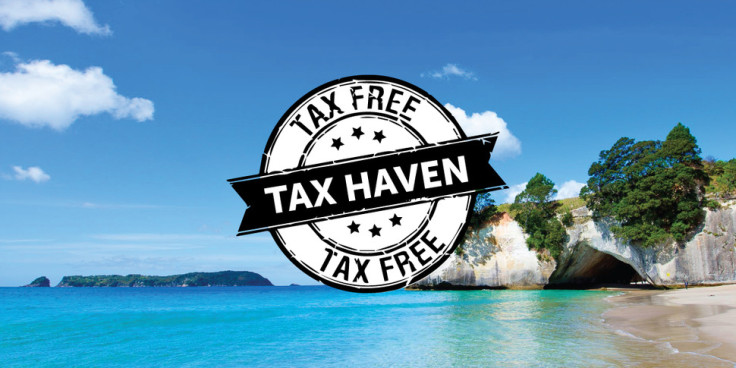UK accused of protecting tax dodging practices of its overseas territories
Molly Scott Cato MEP, the Green spokesperson on tax justice in the European Parliament, refers to documents leaked to the Green group in Brussels.

The British government, it appears, has been trying to block EU attempts to place some of the UK's off-shore territories on an EU blacklist of tax havens. The creation of a blacklist of tax havens, based on new criteria, followed the Panama Papers' revelations. The process has had several stages. Firstly, a pre-assessment was made by the Commission of third country jurisdictions (non-EU countries), assessing their risk of facilitating tax evasion and avoidance; secondly, an agreement by the European Council on a short-list of countries with whom to enter into a political dialogue, and thirdly, a screening process of short-listed countries leading to a final blacklist selection.
Back in November 2016, Finance Ministers agreed on the criteria for screening third countries: transparency, fair taxation and implementation of the OECD BEPS (Base Erosion and Profit Shifting) action plan. There were fierce negotiations on the interpretation of criterion 2 (fair taxation) and the UK, along with Ireland and Luxembourg, succeeded in watering down the ambitions. As an example, a country with a zero-tax rate would not automatically qualify as not having a fair taxation system.
92 countries were shortlisted including 81 countries flagged by the Commission in 2016, 5 countries who have a tax agreement with the EU (Switzerland, Monaco, Andorra, Liechtenstein and San Marino) and 6 other countries considered as financial centres (Palau, Niue, Nauru, Malaysia, Marshall Islands and Vanuatu).
Finally, in December last year, the European Council published a blacklist of 17 countries and a 'greylist' of 47 jurisdictions. Countries on both the blacklist and greylist are those which fail to meet at least one of the three criteria for screening, but greylist countries are those which have committed to change their legislation in order to be compliant.
However, the process has not run smoothly and there has been disagreement on the methodology for countries with a zero or close-to-zero corporate tax rate. For these cases, Member States agreed to apply five additional sub-criteria to decide if a territory facilitates harmful structures. But just to add a further spanner in the works, there was disagreement on how to interpret some of these sub-criteria. This is where the UK's blocking tactics seem to have come into play.
Documents leaked to the Green group in Brussels, reveal that 'one member of the screening panel' disagreed on the interpretation of the sub-criteria and that disagreement centred on the evaluation criteria used to evaluate 11 jurisdictions. These jurisdictions included some with strong ties with the UK – Anguilla, Bahamas, Bahrain, Bermuda, British Virgin Islands, Cayman Islands, Guernsey, Isle of Man and Jersey – so it doesn't take too much detective work to deduce that this 'one member' was most likely the UK, keen to protect some of the UK's most notorious off-shore tax havens. Could it just be that the UK is holding out, blocking progress on tackling tax avoidance in the EU in the hope they can turn the UK into the world's leading tax haven post-Brexit?
The obstructive actions of the UK – while morally indefensible – demonstrate deep flaws in the whole blacklisting process. It lacks transparency, has unambitious criteria to assess countries and focuses only on third countries, ignoring EU Member States that are known to have harmful tax regimes. NGOs like the Tax Justice Network have provided their own lists of tax havens which include Member States. Finally, there is also a lack of credible sanctions for blacklisted countries.
European leaders talk tough on tax justice at home but then go and undermine progress in tackling tax dodging in private meetings in Brussels. Taking on tax havens requires a real blacklist, not just a tick box exercise. We also need public access to documents on the blacklisting process so that European citizens can hold their governments to account in the fight against tax evasion and tax avoidance.
This is why Greens have written to the Council Presidency and to the Chair of the Code of Conduct Group, criticising the lack of transparency and accountability of the screening process on blacklisting. We have demanded the Council publish all commitment letters received by the 55 greylist jurisdictions and have called for a clear timetable regarding sanctions. Greens also fought for – and won – a new committee on tax in the European Parliament which will start work in March and which will provide an opportunity to increase scrutiny of the blacklisting process and help improve transparency.
Molly Scott Cato MEP is Green spokesperson on tax justice in the European Parliament.





















